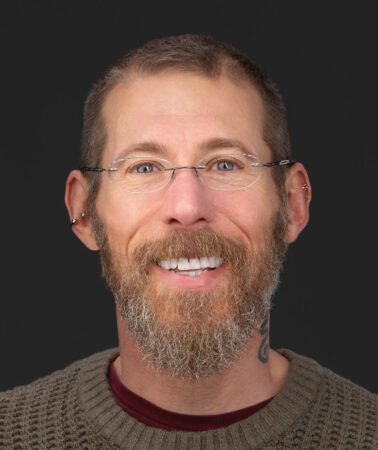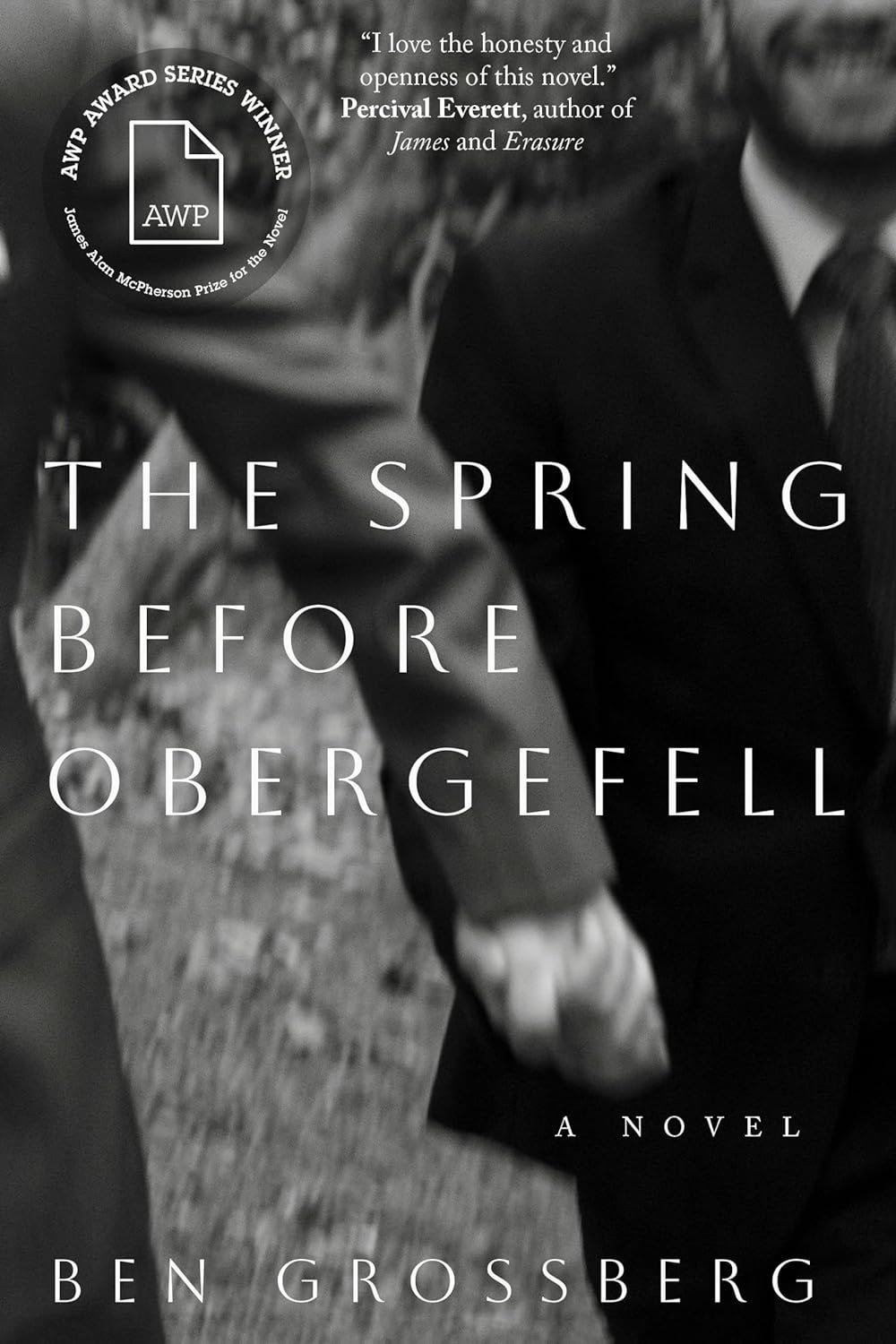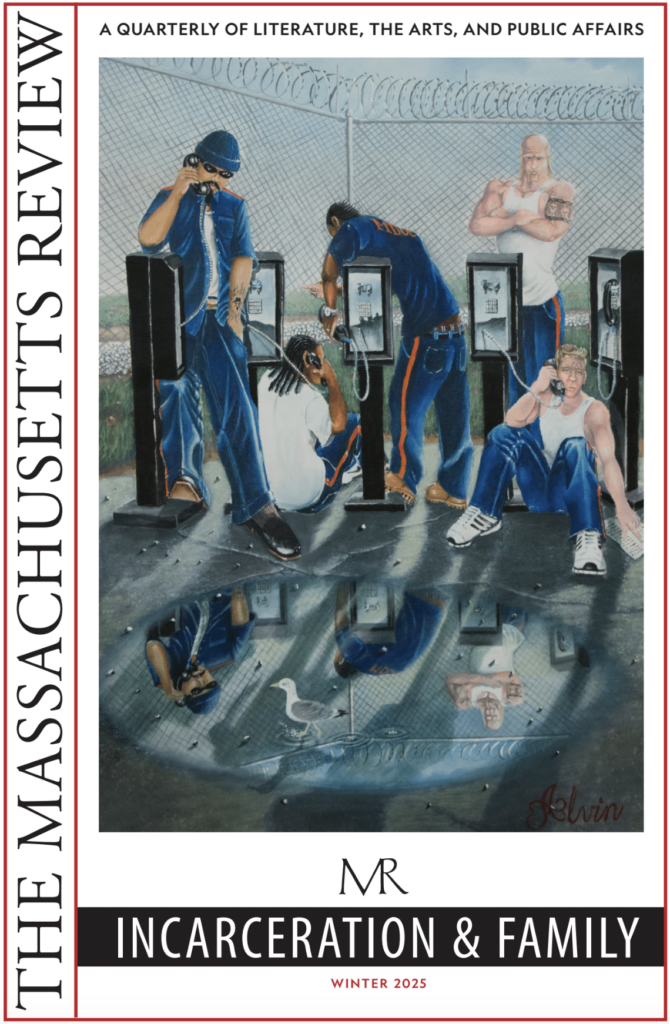10 Questions for Benjamin S. Grossberg

The bubbles of my words amuse him.
He pokes them with a forward tentacle
as they rise from my mouth. Bigger
bubbles for longer words. I can feel
and see rather than hear his giggling.
See: yes. A tittering of the body,
a gelatinous shake which assures me
he still likes me.
—from Benjamin S. Grossberg’s “My Octopus Lover Is Easy To Talk To,” Volume 66, Issue 2 (Summer 2025)
Tell us about one of the first pieces you wrote.
I spent the summer of 1992 waiting tables at the King’s, a scruffy hotel not far from the waterfront in Brighton, England. The best part was getting to know the other waiters, the maids, and the handyman—tough working-class folks. One of them, an older guy named Ray who referred to himself in second person, told me fantastic stories about gay life in town. Brighton had—still has—a vibrant gay community. That fall, back at Rutgers for my senior year, I wrote a poem about Ray’s stories, including a bashing that had taken place that summer. A man who’d been cruising on the pebble beaches was found unconscious at sunrise, his blood draining through the gray stones. The poem closed with that image. In May 1993, long-time editor Rudy Kikel published it in Boston’s LGBTQ+ newspaper, Bay Windows. “The Tidewater of Brighton” was my first published poem. I didn’t think there could be a greater happiness.
What writer(s) or works have influenced the way you write now?
My pantheon includes D.H. Lawrence, C.K. Williams, Walt Whitman, Shakespeare, and Jane Austen. Is there a common thread there? Maybe two threads. Lawrence, Williams, and Whitman on one—for the power of the long line, voice, and breath. And Austen and Shakespeare on the other, for elegance, wit, and masterly construction. I’m hard put to trace the influence of these masters back to the Octopus poems, but perhaps in a subclinical way it’s there.
What other professions have you worked in?
Not counting a series of summer jobs (see King’s Hotel above), all I’ve ever done is teach. This upcoming academic year will be my thirty-second in front of a classroom, which makes me feel Methuselah old.
What did you want to be when you were young?
I’ve wanted to be a writer as far back as I can remember. To me, it was astronaut, firefighter, and king of the hill rolled into one. It’s all playing out pretty quietly, but, big picture, I think my childhood sense was dead on.
What inspired you to write this piece?
For many years, I had this idea for a science-fiction novel about an octopus-like alien. After not writing that novel for a while, I decided I’d give it a go as a series of poems. What came out was nothing like the novel I’d envisioned. For starters, the novel was going to be in first person from the cephalopod’s point of view, and the poems take the octopus as the speaker’s love interest. Also, the poems are a lot more playful than the novel was going to be. But once I began the poems, I fell in love with the octopus and how he resisted the speaker’s middle-age melancholy. The octopus is a sprightly, practical fella.
Is there a city or place, real or imagined, that influences your writing?
No. I’m a homebody, the kind of guy who feels guilty about leaving his cat alone for more than a few hours.
Do you have any rituals or traditions that you do in order to write?
No traditions, just that moment of wrestling with the will to start. I ought to develop a few traditions. I bet they make the wrestling easier.
If you could work in another art form what would it be?
I’d love to be an oil painter, to be able to lay on vivid color. I’m reminded of Frank O’Hara’s poem “Why I Am Not a Painter,” which I like but don’t quite understand. My version of that poem would be much shorter, possibly a haiku. The middle line might read: “Because my paintings would suck.”
What are you working on currently?
My mobility has been severely restricted this summer, including a month in a wheelchair. I’ve been a distance runner for twenty-five years, but now it seems the universe has decided to teach me another thing about the body—something I guess I was bound to learn eventually. The situation has finally forced (or allowed?) me to start that science-fiction story I mentioned earlier, the octopus-alien one. I should complete the first draft by the end of August, and—though I very much wish to walk again soon—I’m grateful something made me sit down and write it.
What are you reading right now?
I just this week finished Kent Haruf’s Holt trilogy. His elegant, pared-down prose is a marvel. So immediate and translucent that one might take for granted how fully it evokes the flavor of the small Colorado town he’s creating, how he produces such fullness without a hint of decoration. Haruf died in 2014. Here’s a silly thought: I have a little trouble understanding how someone who could write prose that good could die.
BENJAMIN S. GROSSBERG’S books of poetry include My Husband Would (University of Tampa Press), winner of the Connecticut Book Award, and Sweet Core Orchard (University of Tampa Press), winner of a Lambda Literary Award. He also wrote the novel The Spring before Obergefell (University of Nebraska Press), which was selected by Percival Everett for the AWP Award Series James Alan McPherson Prize. Ben is director of creative writing at the University of Hartford.




